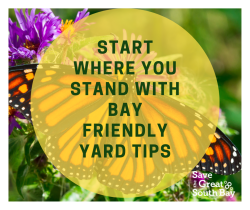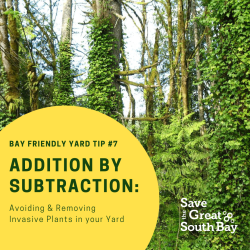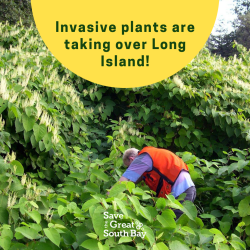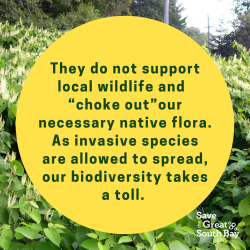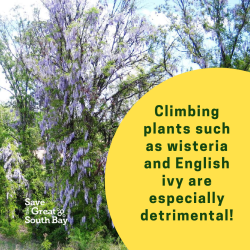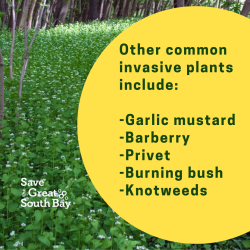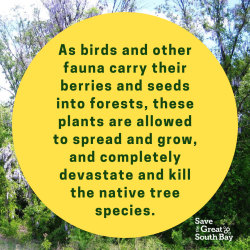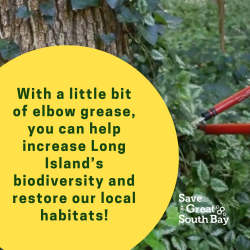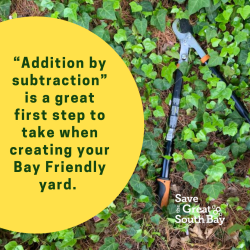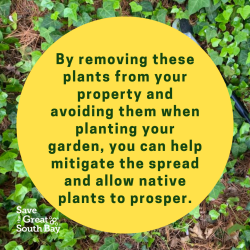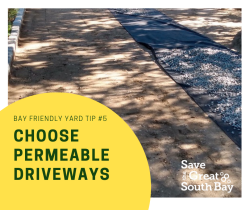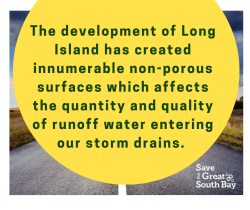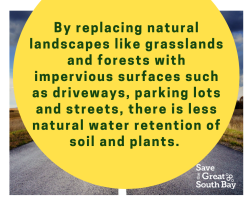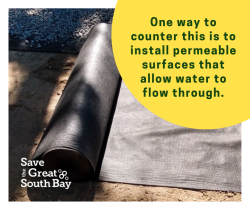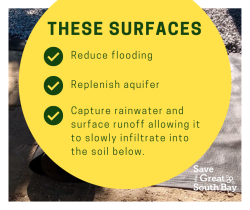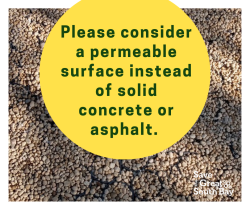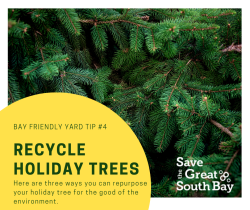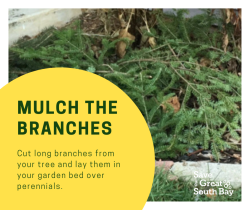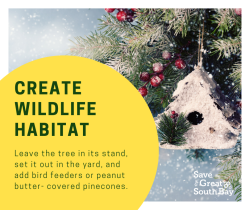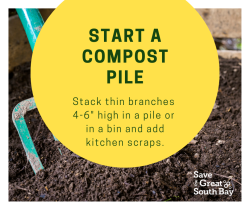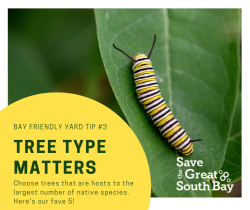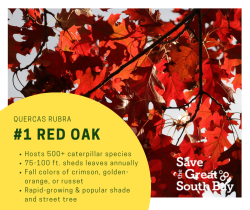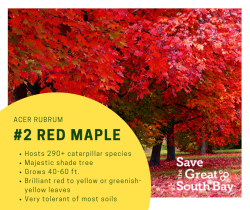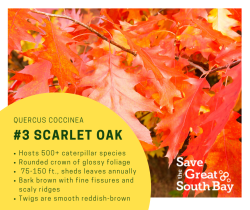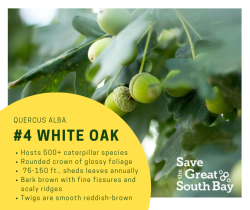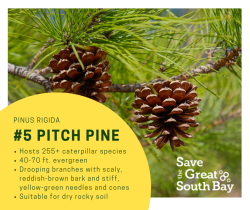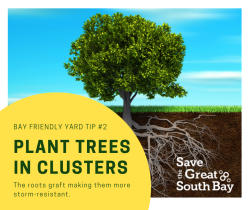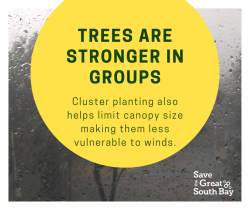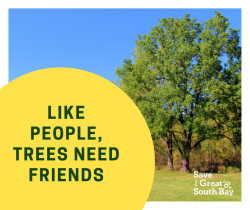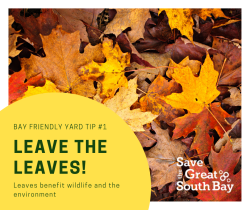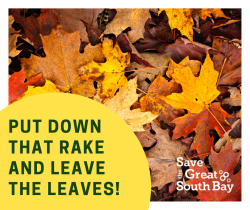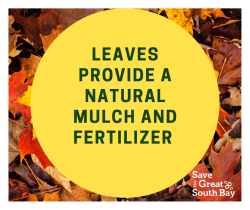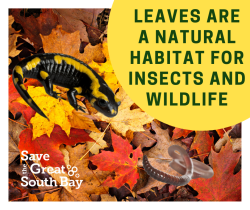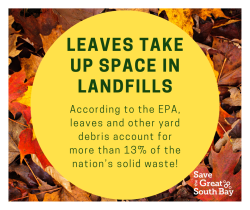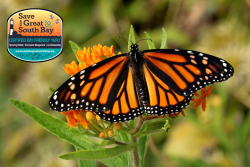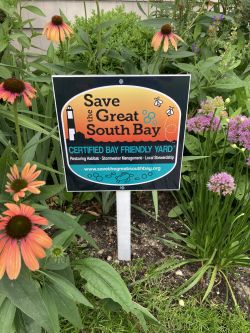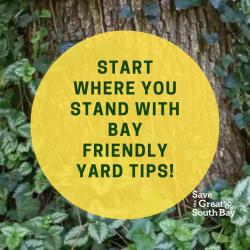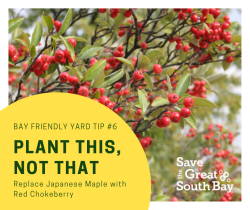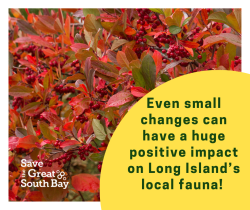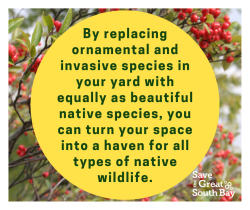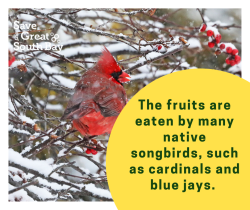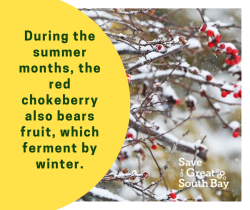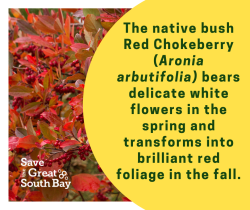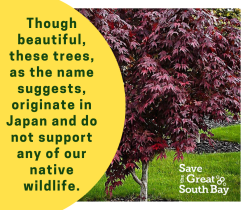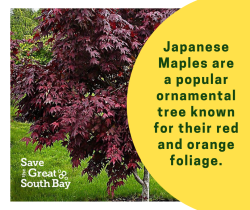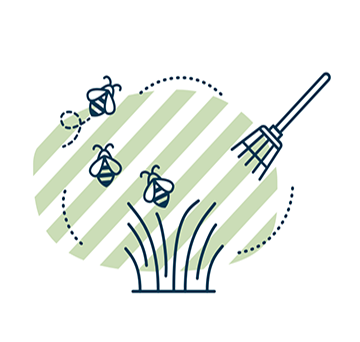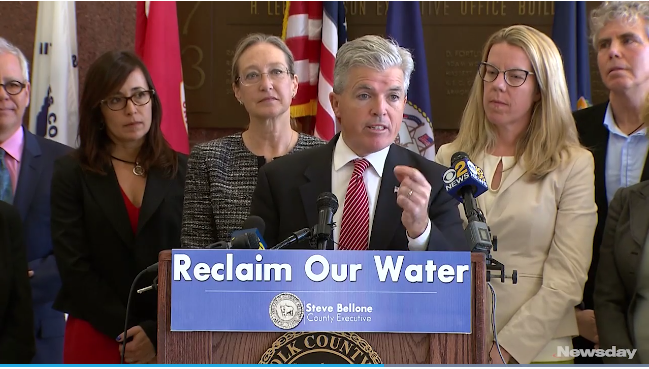Bay Friendly Yard Program
Photo Gallery
Find Out More
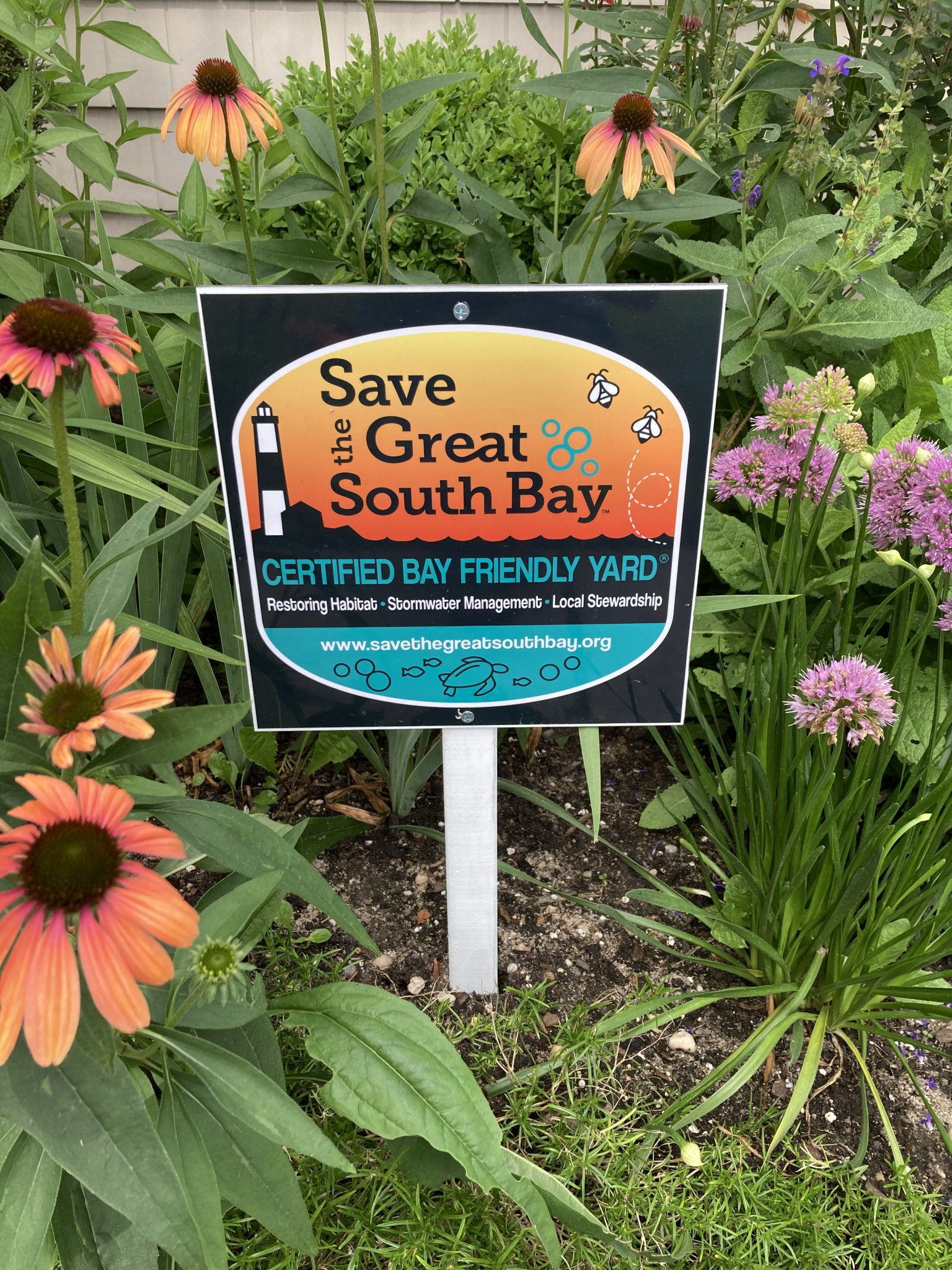
Plant Bay Friendly!
Certify Your Yard Bay Friendly
- Habitat Restoration
- Stormwater Management
- Local Stewardship
Become a Certified Bay Friendly Yard and proudly display a yard sign.
Apply Now or email us info@savethegreatsouthbay.org for more info!

Bay Friendly Guidelines:
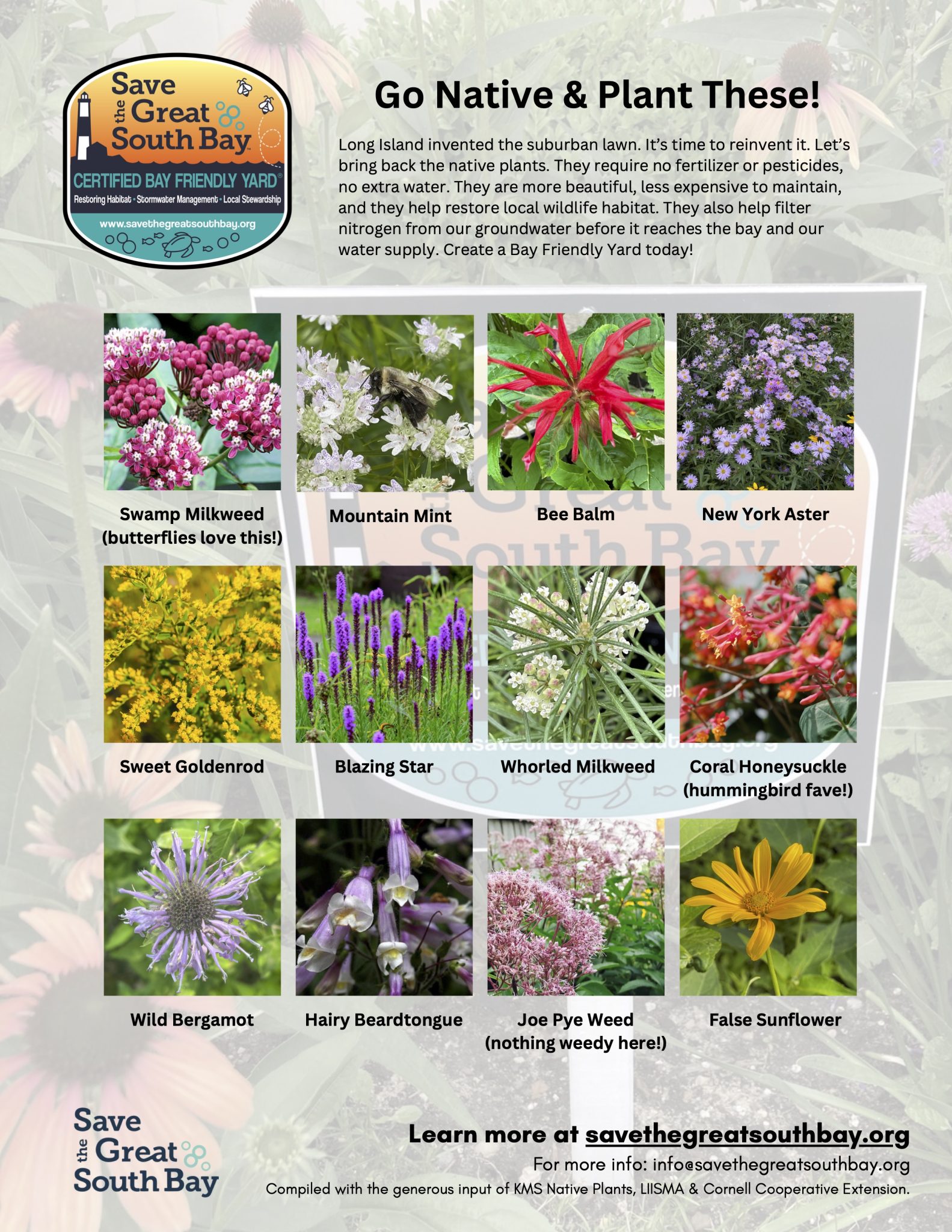
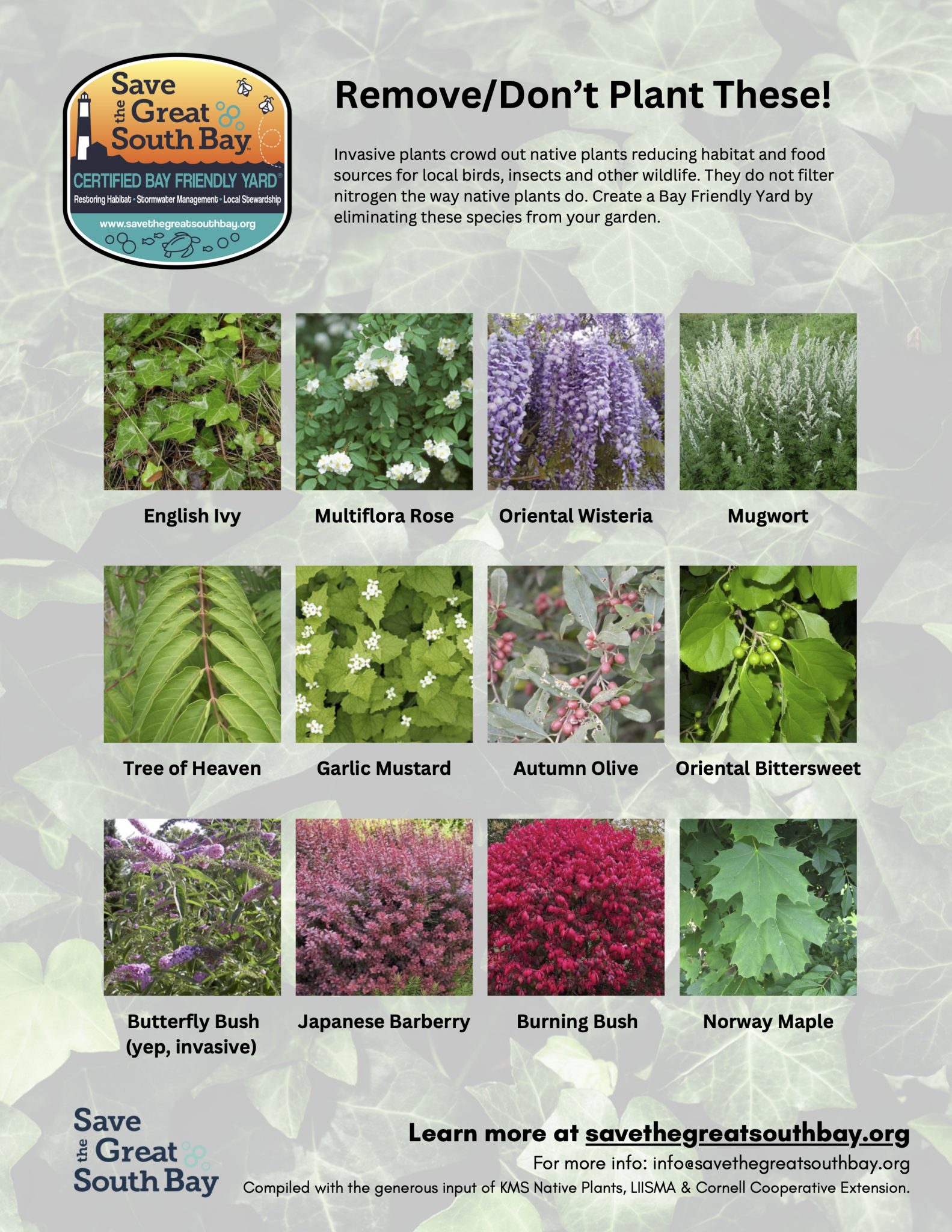
Get A Free, Native Planting, E-Book To Help You Get Started!

- Step-by-step instructions to assess your yard
- Lists of LI native species
- Tips on how to arrange these plantings
Bay Friendly Yard Webinars
Bay Friendly Yards: Ocean Beach
Director of Habitat Restoration Frank Piccininni addresses the Village of Ocean Beach Civic Association on how to create Bay Friendly Yards in the Fire Island community.
Bay Friendly Yards: Recycling Stormwater
Bay Friendly Yards: Creating A Butterfly Garden
Bay Friendly Yards: Nature and Mindfulness
Bay Friendly Yards: Creating Wildlife Habitat
Bay Friendly Yards: Three Essential Elements
More About Bay Friendly Yards
The 5K Run For The Bay And Our Mission: Go Native, Go Naked In Sayville!
The 2nd Annual 5K Run For The Bay Is Happening In Sayville This Saturday! 500 + entrants already! Run for a healthier bay!
Speak For Your Bays: Contact Your State Senators
Tell your State Senator that you support S-8170, which would reduce the nitrogen content in lawn fertilizers, and give our bays a break.
Contact Kemp Hannon. Tell Him You Support S-8170 “The Fertilizer Fix”
As many of you know, a law has been proposed in Albany that would mandate that lawn fertilizer contain no more than 12% nitrogen in the bag, and at least 50% non-soluble (slow release) nitrogen. With at least 10% of the nitrogen in the bay coming from lawn...
Support “The Fertilizer Fix” and Help Our Bays!
Kudos to Grassroots Environmental Education, our partner in the I Love Long Island Campaign for 'bay friendly yards'! Thanks to them and to Assemblyman Steve Englebright, Chair, Committee on Environmental Conservation and Kemp Hannon,Senate Health Committee Chair,...
Have a Bay Friendly Yard
Hiring a landscaper for 2018? Make sure they are being ‘green’ about it. Ask them to use a mulching mower so that the grass clippings can feed your lawn. That is the best food your lawn can have. Why have the clippings dumped in a landfill so that you have to throw expensive chemical fertilizers on it?
If you have pets or children, love nature and respect your neighbors, avoid pesticides. If you kill the bugs, you kill the soil. There will be fewer birds, amphibians. Pesticides also have a way of ending up in our drinking water and our bays, rivers and ponds. We are seeing a global collapse of insects, including the pollinators. Let’s stop with the Roundup. There are natural ways of dealing with insects. Dragon flies, bats, and birds like Purple Martins are all voracious mosquito eaters. Take this route over Mosquito Squad. Your grandchildren will thank you.
LINAP: Is Long Island At a Turning Point?
Long Island is about to replace its cesspools and septic tanks. Nassau County has 140,000, Suffolk 360,000. Suffolk intends to launch a pilot program that will deploy 400 units over the next two years. Albany is chipping in with $2 billion to address the issue at scale. Yet more will be needed, but everyone, seeing the problem, is stepping up. At the same time that we do this, we need to stop polluting our waters with lawn fertilizer and pesticides.

